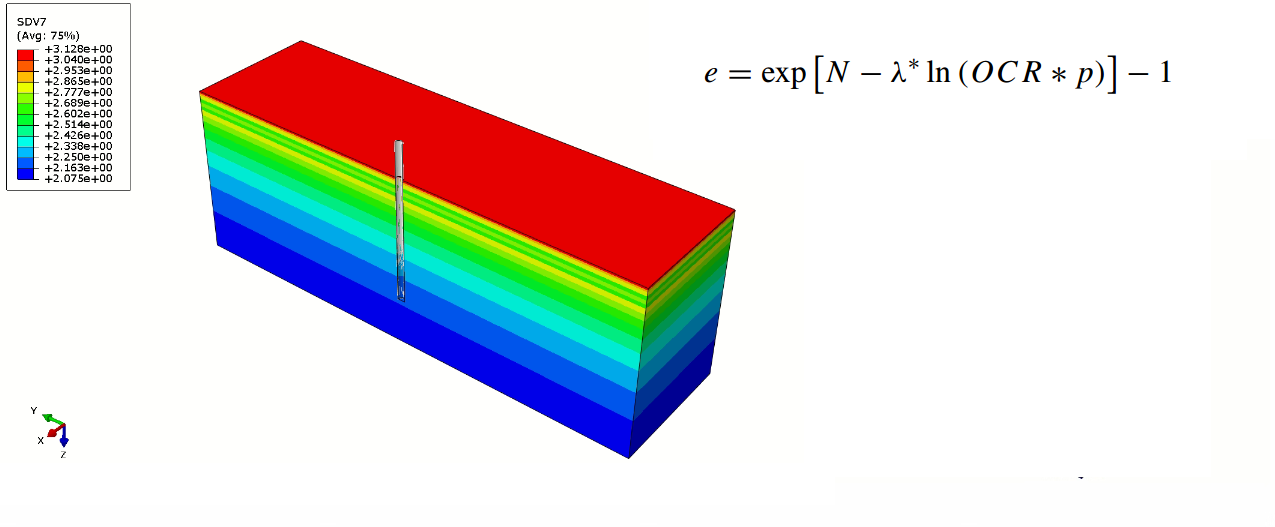Modeling Helical Pile Driving and Installation in Hypoplastic Clay Soil With Stiffness Anisotropy Incorporation for Cyclic and Axial Loading Using VUMAT and VSDVINI via CEL Approach
$ 210
The subroutine code used here (with minor modification) is available openly for download at www.soilmodel.com. If you use this subroutine and this work than Please cite the following work of Dr. David Masin:
Article #1 “”A hypoplastic constitutive model for clays”” Doi# https://doi.org/10.1002/nag.416
Article #2 “”Cyclic lateral response and failure mechanisms of semi-rigid pile in soft clay: centrifuge tests and numerical modelling””Doi# https://doi.org/10.1139/cgj-2016-0356
Hypoplasticity is a different way to describe how certain materials, especially geomaterials like soils, behave under stress and strain. Unlike traditional Elasto-plastic models, which use concepts like yield surfaces, flow rules, and consistency conditions to describe deformation, Hypoplasticity takes a different approach. The key concept in Hypoplasticity is the idea of asymptotic states, which refers to the stable, final conditions that the material reaches under certain stress and strain conditions. By focusing on this, Hypoplasticity aims to provide a more accurate and comprehensive way of describing how geomaterials deform, without relying on the traditional Elasto-plastic framework.
In this study, the driving of a helical pile in clay soil in undrained condition is modeled using the CEL approach in ABAQUS. The initial condition in the form of void ratio/OCR and intergranular strain is initiated using the VSDVINI subroutine. This subroutine is available in Abaqus 2022 and the latest version. In the second stage of the study, the pile installation is modeled using the UMAT subroutine under cyclic loading.
In the model, you will be able to understand:
Installation of the pile in Hypoplastic clay soil under single and variable void ratio (multilayer condition) using UMAT and SDVINI.
Calculating pore water pressure and effective stress (UMAT and VUMAT).
Calculating the effective stress under axial and cyclic loading (UMAT and VUMAT)
Access to Original Files
Our packages include comprehensive design documentation, detailed analysis reports, and essential files, all readily available for download. This collection ensures that you have everything needed to replicate the project or adapt it to fit your specific needs.
Project Customization
If you’d like to improve or modify our featured project to better suit your requirements, we offer customization services. This includes adjusting design parameters, adding extra analyses, or creating variations tailored to your industry or application.
Tutoring & Consultation
Receive expert guidance on complex engineering concepts through comprehensive tutorials and live sessions, designed to help you understand and apply these subjects effectively. Our expert-led tutorials provide a clear, step-by-step guide to complex engineering concepts.

